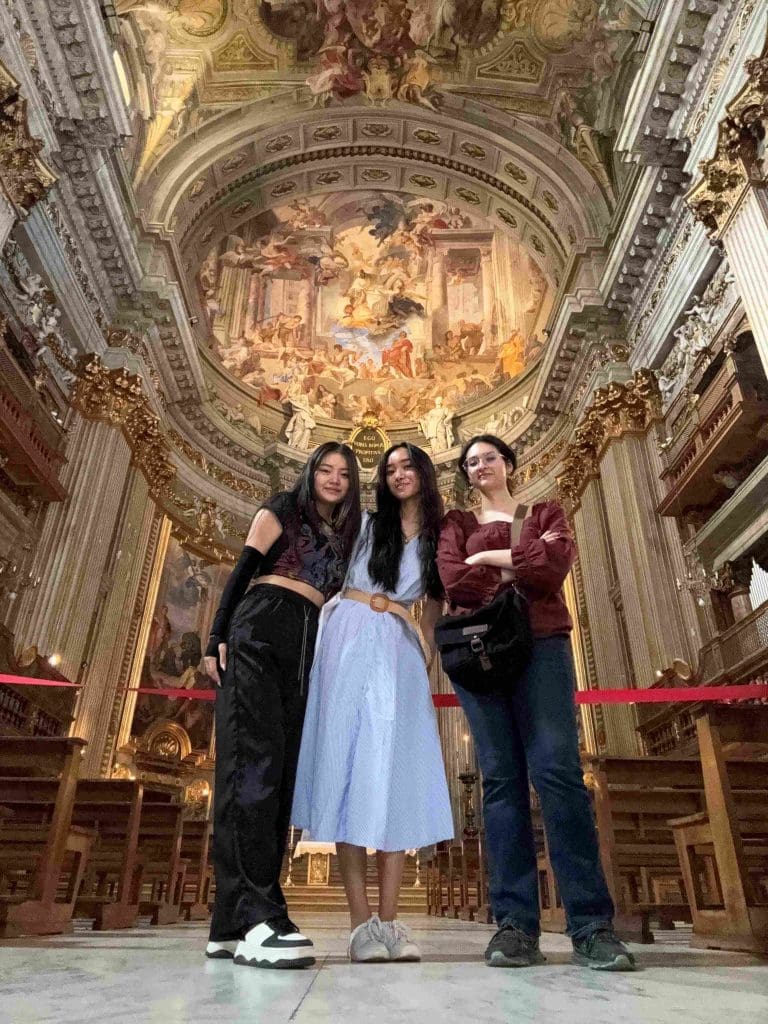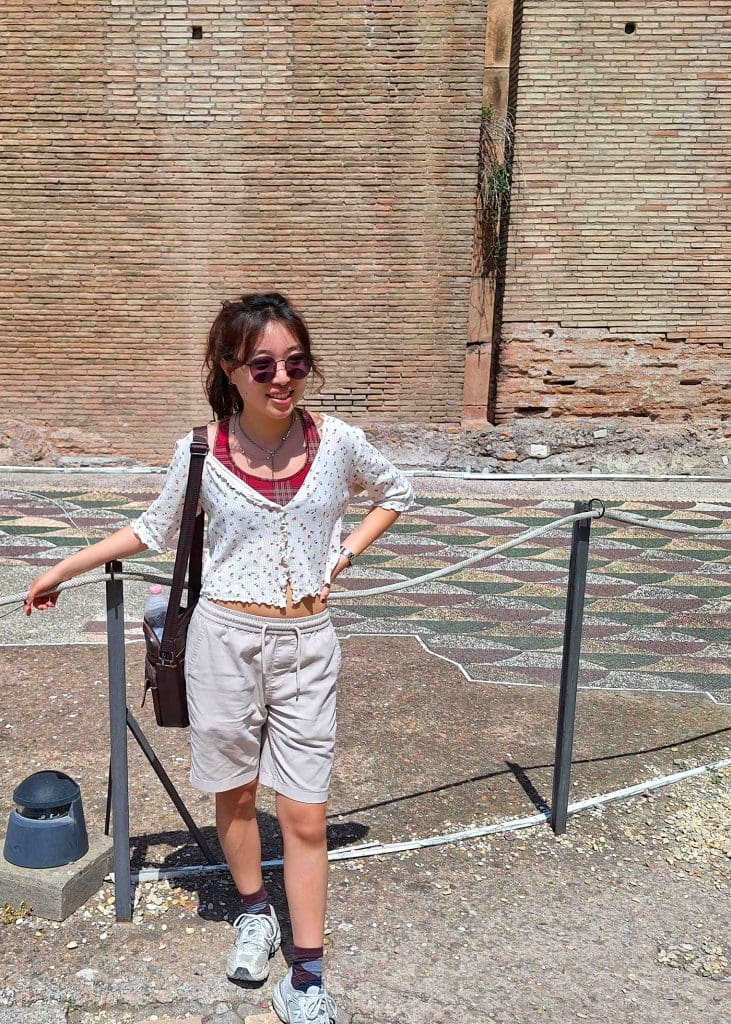
Rome Program 2023
Touching down in Rome, I was reminded of how much I love walkable cities and their tiny, bustling alleys. I loved looking at strangers and meeting their eyes and I loved even the little game of dodge you had to play with the cars that came down the streets.
When my class visited the Vatican Museums, we first walked down a long hallway of busts and statues. Each stone head was precisely carved to capture a person from centuries ago. My classmates and I tried to guess what they might have been like in life. This one was arrogant. This one’s lips relaxed in thought. This one was discerning, or thought herself to be. We were in awe of how each was completely unique. It was like walking past strangers on the street, seeing people you’d never see again.
It’s a weird intimacy you get with strangers in cities. We read a Joan Didion essay in class; on her time in New York City, she writes, “I began to cherish the loneliness of it, the sense that at any given time no one need know where I was or what I was doing.” People are more visible in cities, but they’re also anonymous.
There’s another dimension to Didion’s loneliness that comes from being a visible outsider. I’ve never lived in a place where I’m really from, if you don’t count the first five years of my life in Seoul. I don’t really get homesick, and I’m used to adapting to different habits, like bidets and paying for water. Like Didion, I cherished this loneliness: no one need know me. No one in Rome, nor in Baltimore or Seoul, needed to know what I was doing. I was free of cultural context and therefore free to observe context. I think that’s partly why I liked guessing at everyone’s lives on the street, just as we guessed at the inner lives of the Vatican busts. Every face so lifelike. How do they do it?
For class we were to turn in one creative piece a week, and I wrote about being known and unknown in a foreign place. I’d always had trouble writing about Korea; it seemed like such a faraway part of me. But being in Rome made me confront the nature of otherness that I might have been able to ignore in the more familiar Baltimore. I found myself writing not about Rome but about Korea, about a Korean-American girl who visits her family in Seoul. She goes clubbing with a stranger and her worried mother tries to track her down. It became a story about being slightly outside of what is required of you in your social and cultural context.
I love about the no-nonsense intimacy in cities. No one need know what you are doing, but someone might give you some pointers.

